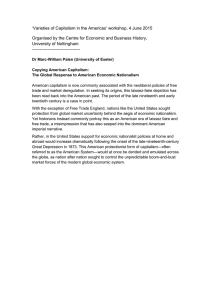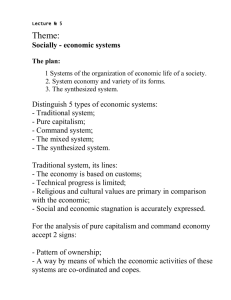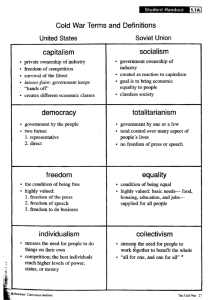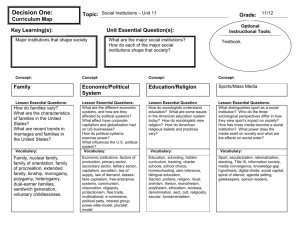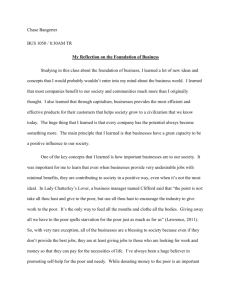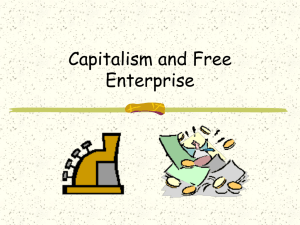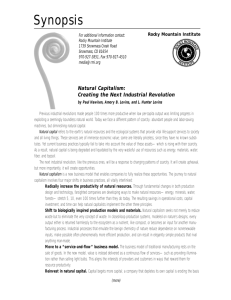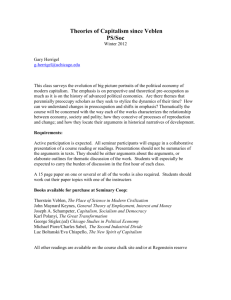“Relational Comparison Revisited” Abstract
advertisement
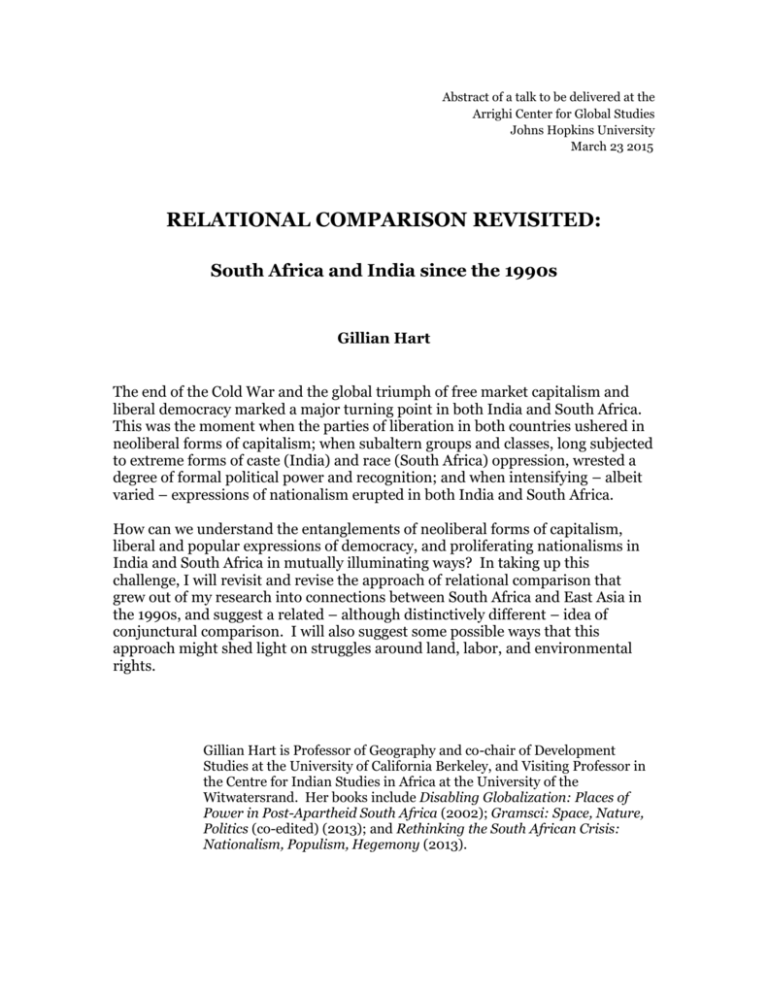
Abstract of a talk to be delivered at the Arrighi Center for Global Studies Johns Hopkins University March 23 2015 RELATIONAL COMPARISON REVISITED: South Africa and India since the 1990s Gillian Hart The end of the Cold War and the global triumph of free market capitalism and liberal democracy marked a major turning point in both India and South Africa. This was the moment when the parties of liberation in both countries ushered in neoliberal forms of capitalism; when subaltern groups and classes, long subjected to extreme forms of caste (India) and race (South Africa) oppression, wrested a degree of formal political power and recognition; and when intensifying – albeit varied – expressions of nationalism erupted in both India and South Africa. How can we understand the entanglements of neoliberal forms of capitalism, liberal and popular expressions of democracy, and proliferating nationalisms in India and South Africa in mutually illuminating ways? In taking up this challenge, I will revisit and revise the approach of relational comparison that grew out of my research into connections between South Africa and East Asia in the 1990s, and suggest a related – although distinctively different – idea of conjunctural comparison. I will also suggest some possible ways that this approach might shed light on struggles around land, labor, and environmental rights. Gillian Hart is Professor of Geography and co-chair of Development Studies at the University of California Berkeley, and Visiting Professor in the Centre for Indian Studies in Africa at the University of the Witwatersrand. Her books include Disabling Globalization: Places of Power in Post-Apartheid South Africa (2002); Gramsci: Space, Nature, Politics (co-edited) (2013); and Rethinking the South African Crisis: Nationalism, Populism, Hegemony (2013).
